Two-year-old Paisley wore a spring dress with a red pea coat and matching beret to the courthouse in Rockland. Some post-nap somersaults had left her blond hair a little mussed. If not for the fancy clothes and the promise of a pizza party and cake after they returned, the day would have been unremarkable for her.
For Jonathan and Christine DeWick, though, last month’s courthouse visit to finalize their adoption of Paisley marked the end of an emotional battle that began when the girl was placed in their home less than two weeks after she was born.
“We’re certainly happy that it’s over and we can start looking forward,” Jonathan DeWick said.
Four and a half hours away, in the town of Fairhaven, Massachusetts, another family grieved.
Alyssa and Robert Chase had adopted two of Paisley’s older siblings – one in 2012, the other in 2013 – and wanted her to join their family, too. The state of Maine, like most other states, favors kinship placement, so they assumed that if Paisley couldn’t reunite with her mother she would go to them.
But that’s not what happened.
“We’re devastated,” Alyssa Chase said. “We’re trying to deal with it as best we can, but we’ve really lost faith in the system.”
Paisley is among a growing number of Maine children who have been born into the opioid crisis and her story highlights how the crisis has strained an already fractured and overburdened child welfare system.
But her adoption was far from typical. It was a case study in what not to do.
The ordeal dragged on for months, leaving both families in limbo as the Department of Health and Human Services refused to make a decision about the girl’s placement.
It finally made it all the way to Maine’s highest court, which ruled in favor of the DeWicks in January. But the court also sharply criticized DHHS. In an addendum to the court’s decision, Chief Justice Leigh Saufley wrote that the state’s failures “cost this child dearly.”
Toby Hollander, who has served as guardian ad litem, or legal representative for a child, in more than 200 cases in Maine, said he read the high court decision and found Paisley’s adoption to be highly unusual and problematic from the start.
“Whether it speaks to a systemic problem, though, I’m not sure,” he said. “We know caseworkers are overworked, but was there more here?”
Maine DHHS spokeswoman Emily Spencer declined to answer questions about this case or make anyone from the department’s Office of Child and Family Services available for an interview. She said DHHS takes seriously its responsibility to place children in homes that best serve their needs.

Robert and Alyssa Chase of Fairhaven, Mass., who had already adopted two of Paisley’s biological sisters – Delaney, 6, in floral dress, and Sunny, 5, in blue – wanted Paisley to join their family, too, and believed kinship gave them preferred status.
“Sometimes, these decisions can be incredibly difficult, especially when there are multiple families involved,” she said. “We are always putting the best interest of the child first when considering appropriate placements.”
The Chases take no comfort from Saufley’s admission that the state erred.
“It’s like playing in a championship basketball game, getting fouled on the last shot and it’s not called,” said Robert Chase. “Then the referee comes up to you afterward and says, ‘Sorry I missed that.’ It doesn’t change anything.”
Even the DeWicks agreed that the state mishandled the case, though they are happy with the result.
“It’s unfortunate for everyone to have to go through this,” Jonathan DeWick said.
If there is a silver lining, it’s that this child born into crisis had two stable, loving families fighting for her, while some have none.
REUNIFICATION WAS PRIMARY GOAL
Paisley was born Oct. 2, 2015, the seventh child to Kristina Winchenbach.
Twelve days into her life, she was removed from her mother’s care and placed with a licensed foster family – the DeWicks.
The goal, as it always is in such cases, was to work toward reunification, even though Winchenbach’s history suggested that was unlikely. Five children born to Winchenbach before Paisley were taken from the mother, who had long battled drug addiction. None of them returned.
Another child of Winchenbach’s, Ashton, spent the first two months of his life in the neonatal intensive care unit and then died a few weeks after being sent home. The cause of death was not known, according to a state medical examiner’s report.
Winchenbach, 39, declined to be interviewed for this story. She is at the Knox County Jail on a probation violation. Her criminal history, much of it drug-related, dates back more than a decade and contributed to her losing parental rights to her other children as well.
Paisley’s father, Michael O’Hara, is not in the picture either.
When the state takes custody of a child, it’s required by law to notify some people, including all biological grandparents of that child, and also anyone who has adopted any of the child’s siblings.
Alyssa and Robert Chase were informed because they had adopted two girls from Winchenbach and O’Hara – Sunny, 5, and Delaney, 6. The couple were asked early on whether they might be interested in adopting Paisley down the road. They said yes.

Deborah Damon, center, sits in the waiting room for her granddaughter Makayla’s appointment at Maine Medical Center in Portland. Damon also has custody of Makayla’s brother Mikey, 8, at right, who came to her at 9 days old. They are the siblings of Paisley.
The state did not immediately notify Deborah Damon, O’Hara’s mother, who lives in Owls Head, even though she is a grandparent and had adopted two of Paisley’s older siblings as well, Mikey, 8, and Makayla, 11. Both were born drug-affected. Makayla has cerebral palsy and requires round-the-clock care.
Damon inquired about taking in Paisley early on but the state rebuffed her, she said.
She was never a legal party to Paisley’s adoption but followed the case closely. She knew the Chases well. The two families have tried to make sure each of their children – all biological siblings – weren’t strangers. Damon often traveled to Massachusetts to visit. The Chases offered her a guest room.
Damon said she would have stepped in to adopt Paisley but after the Chases expressed interest, she saw no need.

Jonathan DeWick holds his adopted daughter Paisley, 2, outside of the Knox County Courthouse in Rockland after her adoption ceremony in March. Paisley was placed with the DeWicks through foster care at 12 days old and has been with them ever since. From left, mother Christine DeWick, Hannah, 15, and in front, Quentin, 4.
The DeWicks, who live in a cape on a quiet road in Rockport, already had fostered three other kids by the time Paisley came into their home. In one of those instances, they ended up adopting one of their foster placements, a boy, Quentin. They didn’t know immediately if they would want to adopt Paisley but said they felt an instant bond.
Early on in Paisley’s life, there were a lot of people interested in her well-being, but the state still viewed reunification with Winchenbach as priority one. That she had lost several other children was a factor but not a deal-breaker.
That’s why caseworkers decided to keep Paisley close to her mother.
The DeWicks said Winchenbach was always kind to them during the early visits. But it was clear she was wrestling with her addiction, the couple said. They didn’t expect Paisley to ever go back to her.
The Chases, who had gotten to know Winchenbach through their previous adoptions, felt the same.
BOTH FAMILIES FRUSTRATED BY PROCESS
The state still saw reunification as a possibility and decided to keep Paisley with the DeWicks, since Winchenbach could more easily visit her there.
Discussion over the girl’s permanent placement was effectively put on hold.
This was significant for two reasons: The longer Paisley stayed with the DeWicks, the more she felt like a part of their family. And the longer the Chases went without Paisley, the harder it would be to make a case that she belonged with them.
The Chases tried to set up visitation, but they couldn’t coordinate with the state and the DeWicks. It didn’t help that the Chases lived hours away, in a different state.
The couple debated renting a house in Maine – at considerable expense – to be closer to Paisley while awaiting the decision.
The first time the Chases got to see Paisley was in June 2016, when she was 8 months old. That was the same time the state petitioned to terminate parental rights.
By that point, the Chases were surprised that the DeWicks had expressed interest in adopting Paisley. To the Chases, the DeWicks were foster parents, temporary by definition. The Chases had been foster parents, too, so they understood that dynamic. Foster families don’t have any legal rights to children.
This is where the state comes in.
DHHS was supposed to make a recommendation about Paisley’s permanent placement if she didn’t return to her mother. But for months it failed to do so. It’s still not clear why.
The state even continued with reunification efforts after seeking to terminate Winchenbach’s parental rights, even though no one involved seemed to think that was prudent. When she was arrested again in December 2016 on a drug-related felony, those efforts stopped.
At that point, a supervisor at DHHS finally directed the caseworker to tell the DeWicks that they planned on placing Paisley in Massachusetts with the Chases, who had begun weekly visitations.
The DeWicks indicated they planned to fight that decision.
DHHS considered bringing the two families together to talk, and perhaps avoid a legal battle, but it didn’t happen.
Both families were frustrated: the Chases because they weren’t getting much time to form a relationship with Paisley; the DeWicks because every time Paisley left their care to be with the Chases, she cried from separation anxiety.
By March 2017, both of Paisley’s biological parents consented to termination. Each said they hoped Paisley would stay with the DeWicks, because she had clearly bonded with them.
The Chases and DeWicks each filed petitions to adopt, setting up a contested battle that would need to be decided by a judge.
Finally, in late May, two weeks before the date set for the contested adoption hearing, the department decided that Paisley should be placed with the Chases and said it would not consent to adoption by the foster parents.
After 18 months with the DeWicks, the state decided to move her.
The recommendation was significant because courts almost always side with the department, according to Hollander, the lawyer and guardian ad litem.
But there were still problems.
Paisley’s guardian ad litem, Lisa Lattes, had recommended that Paisley be placed permanently with the DeWicks. But the state official who made the recommendation to place Paisley permanently with the Chases hadn’t even considered the guardian’s recommendation.
TWO FAMILIES, TWO COMPELLING CASES
The Chases were happy.
Just two weeks before they would go for the adoption hearing before the District Court judge in Rockland, Susan Sparaco, they had the backing of the state.
The DeWicks, though, were crestfallen. Paisley had been in their home almost since birth. They had changed her diapers and gotten up with her when she cried in the night. How could they lose her?
When the couple first learned in January 2017 that the state planned to place Paisley with the Chases, Jonathan DeWick wrote a letter to Bobby Johnson, then associate director of child welfare for DHHS. He explained that Paisley had been diagnosed with Neonatal Abstinence Syndrome at birth – she was withdrawing from drugs – and was clingy and often fussy.
“Though I am no expert in the field of child development,” he wrote, “I am convinced that the pain and trauma caused by separation increases with stronger attachments.”
DeWick also pointed out that a child’s definition of siblings often differs from that of a caseworker. He said Paisley views their other adopted son, Quentin, as a brother and their older daughter, Hannah, as a sister. And why shouldn’t she? They have been in the same house nearly all her life.
As both sides prepared to make their case before a judge, the DeWicks found a specialist in early childhood who would testify that Paisley’s bond with them was greater than the harm that might come from removing her from their home. The Chases objected to that witness, but the court allowed the testimony and said the Chases could call a rebuttal witness if they desired. They didn’t.
Over two days last June, Judge Sparaco heard the competing adoption petitions. By all accounts, both families made compelling cases that Paisley would be loved and protected in their respective homes.
During that hearing, Sparaco hinted at frustration with DHHS. At one point, a supervisor who testified said he didn’t know who made the decision at the department to recommend placement with the Chases.
No one took responsibility.
The judge also made note of the fact that Paisley’s guardian ad litem said the girl “regards her foster parents as her parents,” something the department apparently had not considered.
On June 29, 2017, Sparaco issued an order that found DHHS had “unreasonably withheld its consent to the foster parents’ adoption petition.”
She awarded custody to the DeWicks.
“(The Department’s) consideration of Paisley’s needs and best interest was, at best, narrowly confined to the fact that the (Chases) have adopted two of Paisley’s biological siblings,” the judge wrote.
The Chases appealed the decision to the state supreme court. They said the girl would have developed just the same in their home with time – they just never got that chance.
The high court affirmed the lower court ruling but Chief Justice Saufley wanted a final word.
“Had the Department acted more expeditiously and more assertively to establish a relationship between Paisley and the family of her sisters, she could have been adopted into the same family and had the benefit of a childhood and adolescence spent with her own sisters,” she wrote.
Saufley further wrote that the Legislature “has explicitly established kinship placement as a high priority for children who cannot be raised by their parents.”
“Especially in light of the tragedies caused by the opioid addiction epidemic, it is important to honor the Legislature’s purpose to provide for the early placement of children whose parents cannot care for them with other family members so that the children can grow up with a strong sense of family identity and are not deprived of the lifetime connection that a childhood and adolescence shared with siblings or other relatives can provide,” the chief justice wrote.
DHHS URGED TO SHARPEN POLICY
Though they agreed on little else, the attorneys for each side agreed that the state mishandled Paisley’s case.
“I think the department does its best,” said Sarah Gilbert of Rockland, who represented the DeWicks. “Whether this was mismanagement or a result of high volume, I don’t know. But it’s disheartening how little cohesion and thoughtfulness there is. Thank goodness for judicial oversight.”
Kevin Sullivan, the Gardiner attorney for the Chases, said the case is a reminder that few are watching the department or holding it accountable.
“I don’t think there is any question that (Saufley) was sending a message and the message was: Don’t do this again,” Sullivan said.
He said he heard that state assistant attorneys general who represent DHHS had a meeting sometime after the supreme court decision.
Melissa O’Neal, a spokeswoman for the Maine Attorney General’s Office, would not say whether such a meeting took place.
Christine Alberi, Maine’s child welfare ombudsman, said the issues raised by the Paisley adoption case came up during her annual report to lawmakers this year. She recommended to the department that it sharpen its policy on kinship placement.
“The department should consider a policy where children should always be placed with appropriate kin, including adopted siblings, unless there is a situation where there would be a serious impact on the child and the impact can be measured by evidence based or other objective standards,” she wrote.
The department says it already prioritizes kinship placement and that Maine is above the national average for this type of placement. But it can’t say why that didn’t happen in Paisley’s case.
Spencer, the DHHS spokeswoman, said the department “respects the opinions of the court and of Chief Justice Saufley and will certainly take their opinions into consideration if and when faced with a factually similar case.”
“It is important to note, however, that the department must make decisions about child protective cases based on the unique facts of any given case,” she added.
None of that matters to the Chases.
On a recent night, their daughter Sunny asked: “When am I going to see Paisley? When is she going to come live with us?”
Damon said it’s agonizing to know that her own granddaughter lives two towns away but she doesn’t see her.
“She’ll be old enough one day and she’ll come knocking on my door,” Damon said, her voice choked with tears. “It’s eating at me. She’s my flesh and blood, and I can’t see her. I feel like I lost something in my life.”
Paisley seems happy in the DeWicks’ home. Last week, before the family traveled one last time to the District Court for the ceremony commemorating their adoption, Paisley ran around the living room and rough-housed with 4-year-old Quentin.
The court hearing was closed to reporters per Judge Sparaco’s order, but extended family members attended.
The DeWicks hosted a pizza party afterward at their home.
The couple said they are happy with the resolution but saddened that it took this long. They feel for the Chases, too, and understand if their feelings are hurt.
As for whether Paisley will see her siblings in the future, Jonathan DeWick said he and his wife are open to that.
“Other than a five-hour drive, I think the only thing standing in the way is animosity,” he said. “Maybe that will go away with time.”
Eric Russell can be contacted at 791-6344 or at:
Twitter: PPHEricRussell
Send questions/comments to the editors.



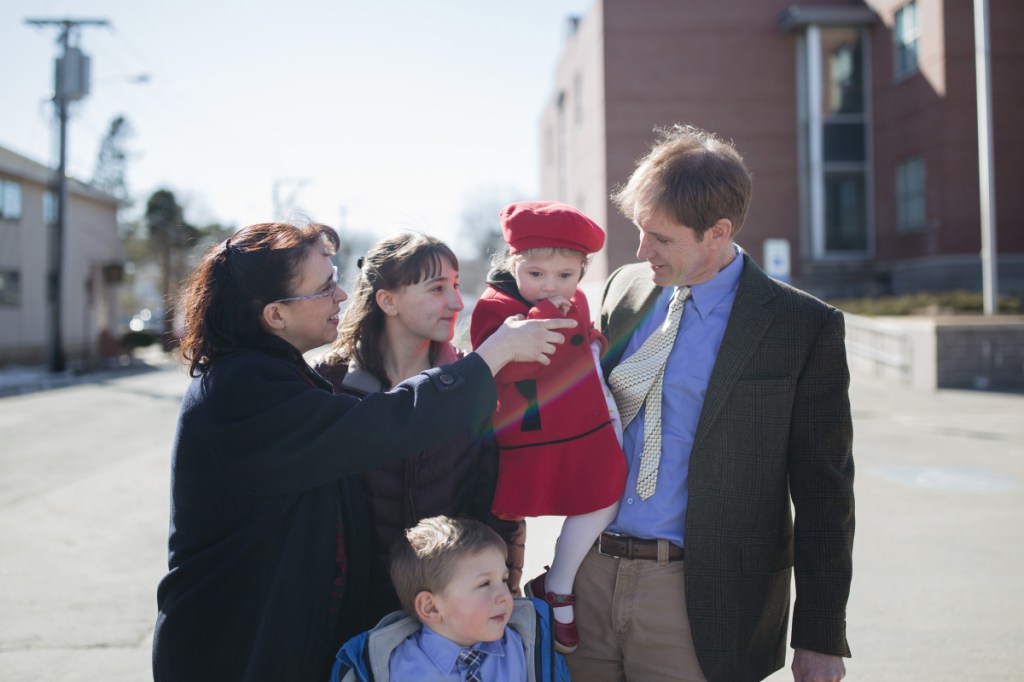


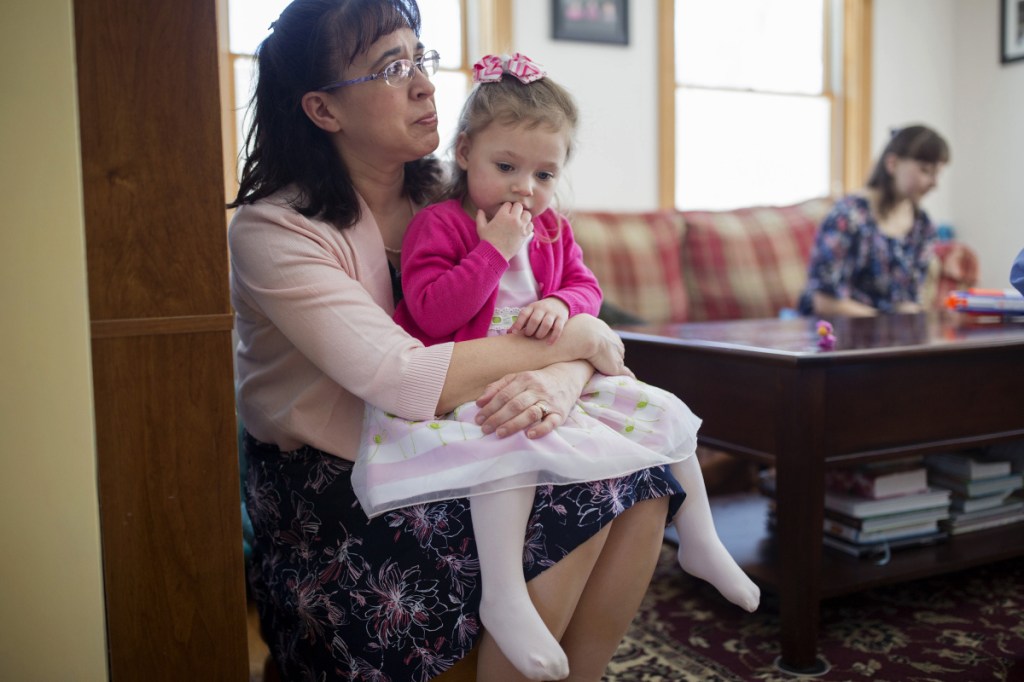


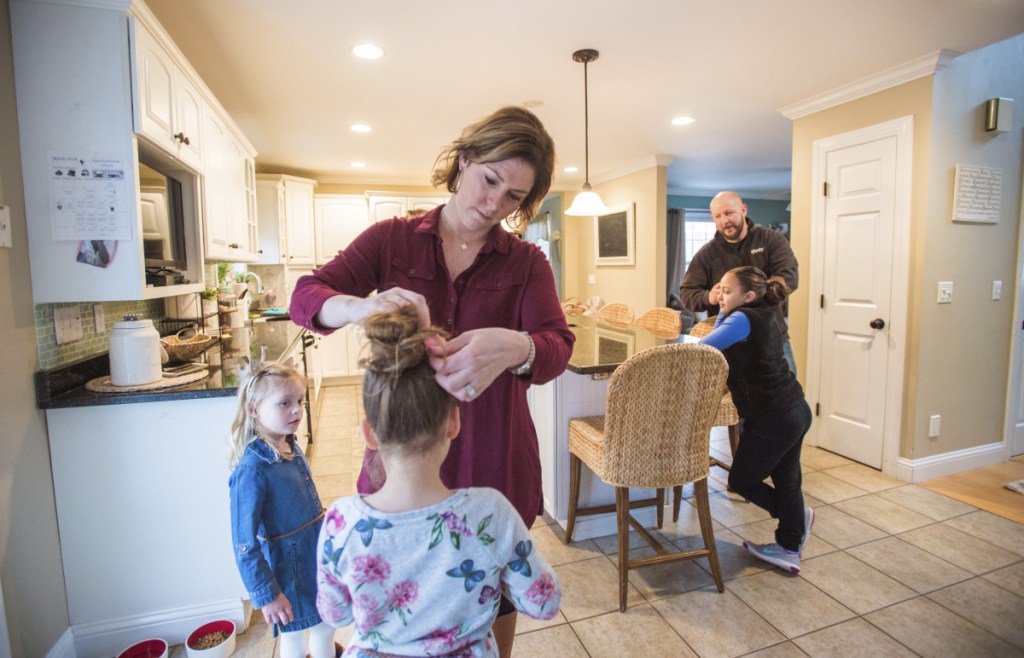
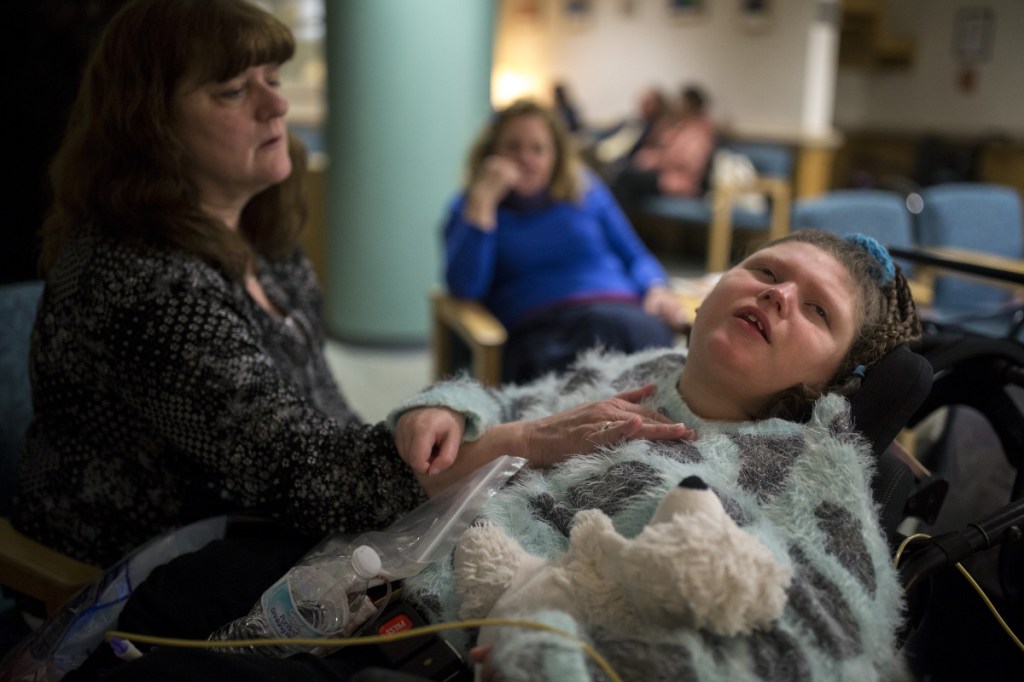
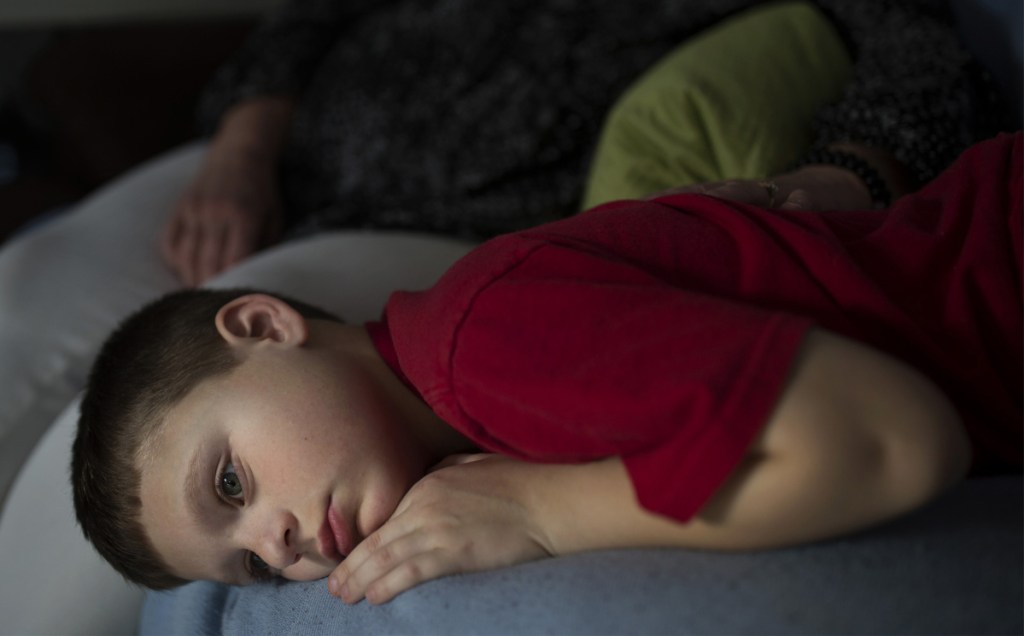
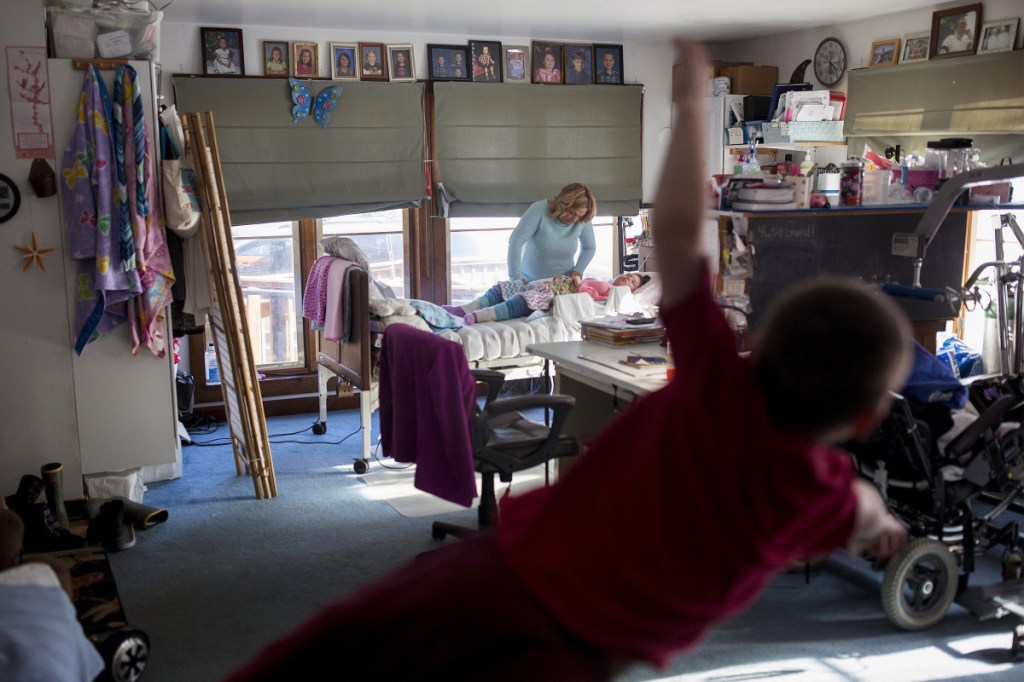
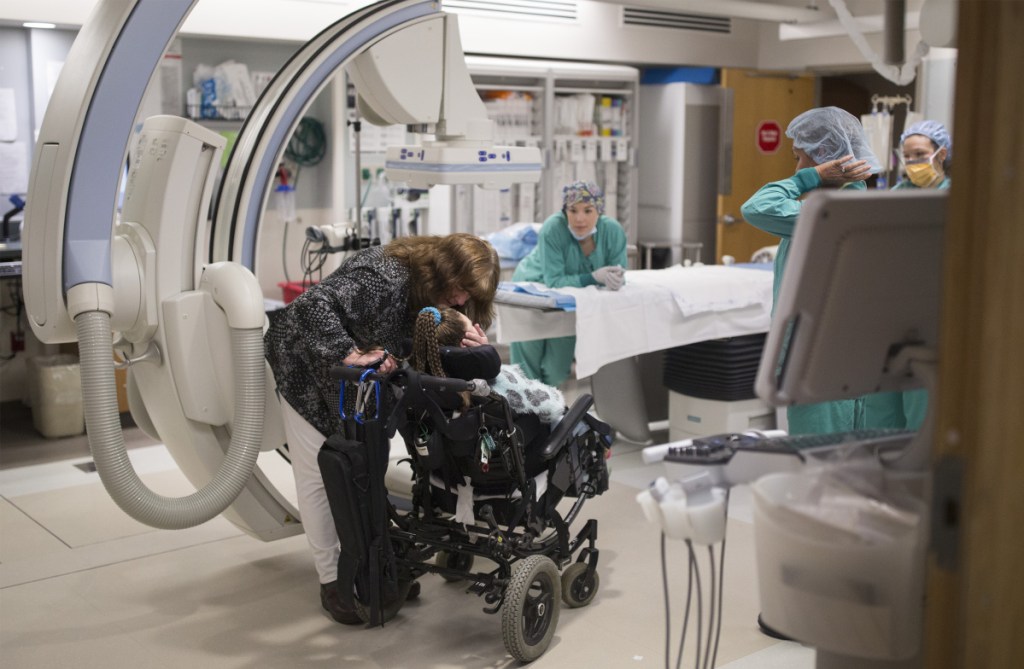
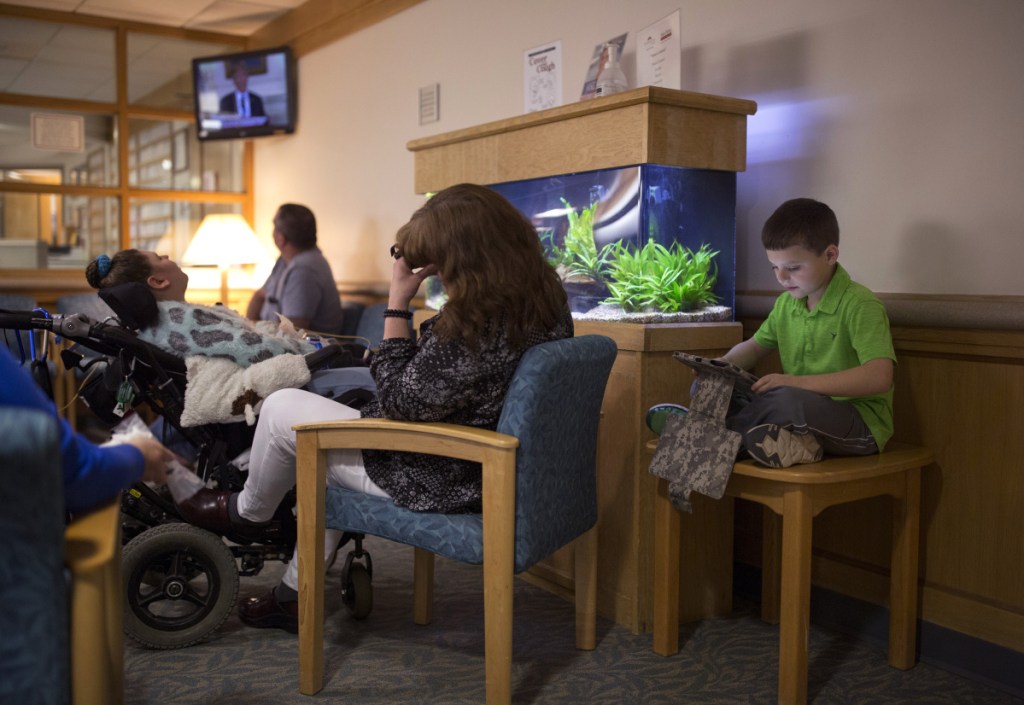

Comments are no longer available on this story